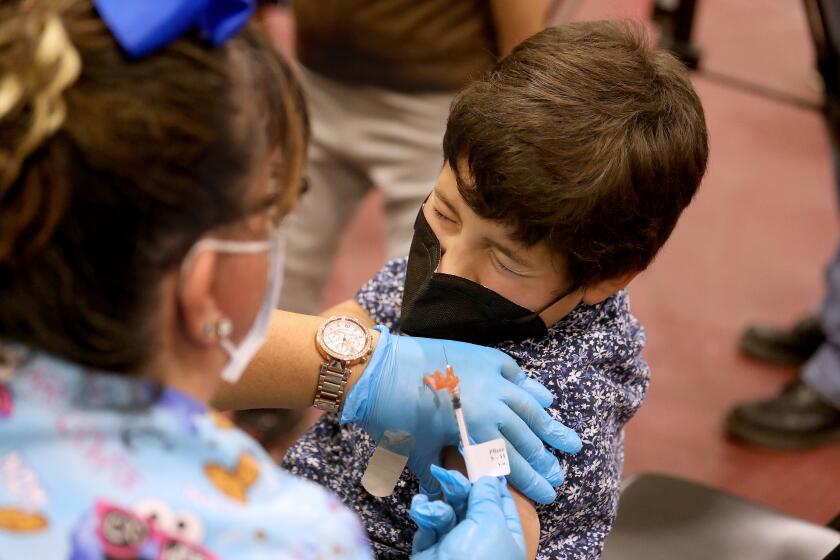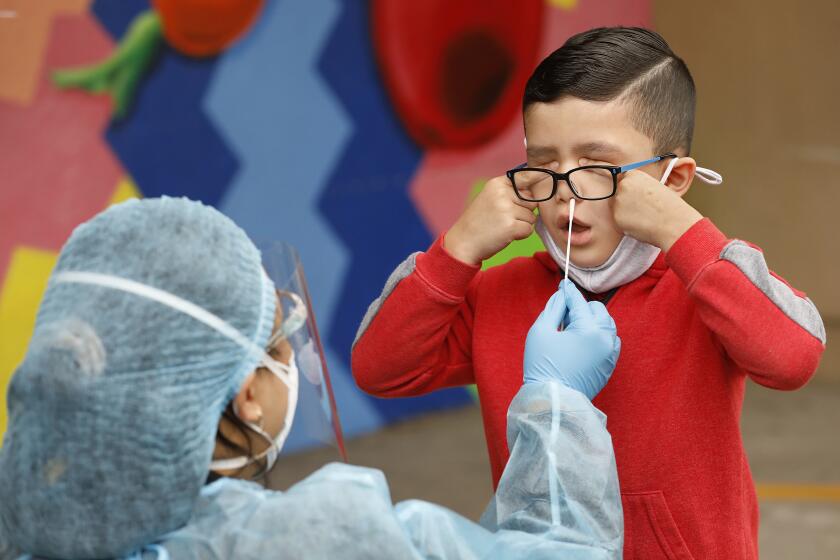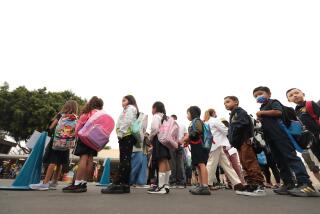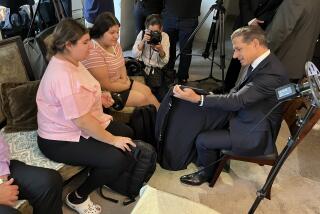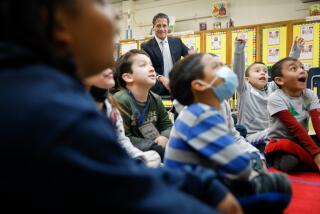Editorial: L.A. schools are being smart about COVID, but Omicron precautions must be ongoing
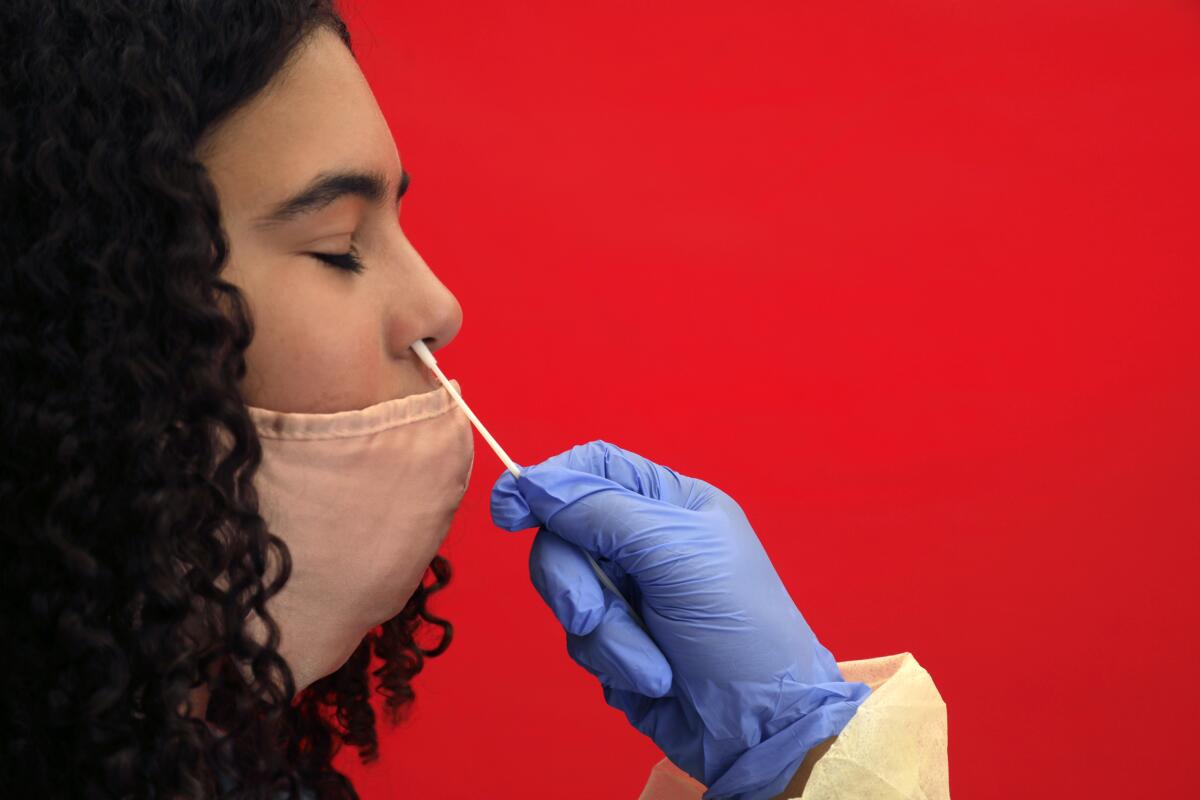
- Share via
Expect a certain amount of confusion and lots of disruption Tuesday and in the weeks to come as Los Angeles Unified students return to school and settle in for the second semester. Despite the district’s best efforts to vaccinate students and trace and contain infections — and make no mistake, it’s been doing a better job than most on this front — the Omicron variant represents a whole new scenario for classrooms.
It appears to be so easily transmitted that even with masks and regular testing there will almost certainly be more outbreaks. Warnings of exposure will quite possibly become so commonplace that parents no longer heed them.
Most schools in the state are open for business anyway, despite scattered delays. That makes sense for now — unless the situation grows more dire. The tendency for vaccinated people to get much milder cases of COVID-19 than from earlier strains of the virus might well mean a safer semester. Still, more students may end up in quarantine and schools will need to make continual adjustments.
The surge in new COVID-19 cases is certainly another reason — as though one were needed — for students and their families to get the vaccine, and booster shot, when appropriate. This would help schools stay open and might be the best step parents can take for their children’s educational and emotional well-being as well as everyone’s physical health.
A judge ruled against San Diego’s school vaccine mandate, saying the state decides such matters. Schools need help from Newsom and the Legislature.
L.A. Unified is especially well prepared to meet the challenges of the latest surge. To start with, all employees will be provided with highly protective medical-grade masks. They deserve and need those masks.
Thanks to former Supt. Austin Beutner, the district also has a uniquely robust testing system for students that relies on weekly administration of the far more accurate PCR test rather than rapid-antigen tests, which are often unable to detect infection in the days before people display symptoms. The district has a testing contract in place that provides results of PCR tests given before school begins the following day.
Unlike other school districts, LAUSD doesn’t have to rely on rapid-antigen tests coming from the state, though those are a good addition to the testing program. It can get enough tests, and superior ones at that.
Too many California kids went back to school this week without knowing whether they’re spreading the highly contagious Omicron coronavirus variant.
The district hasn’t committed to keeping the testing program in place past January, though. Unless things change radically and Omicron transmission slows, without other variants taking its place, it should not push aside a program that’s been working.
Parents can expect lots of notifications that their children have been exposed at school. L.A. Unified already found a sharp increase in COVID-19 cases in the testing it did before allowing students to return Tuesday.
All school districts should help parents and students through what will be a disruptive period (though not as disruptive as having kids learn remotely) by giving them clear direction on what it means when their children have been exposed. How concerned should they be? Should they contact the district for an at-home rapid-antigen test to see if their child is infected, rather than wait for the next testing day at school? Should they keep a medically frail relative from visiting, just in case?
Omicron has us all a bit confused about the best public health practices, but parents need more clarity on how to act in order to make schooling work. They need to send their kids to school unless they’re told otherwise. And above all, they need to vaccinate themselves and their kids if they haven’t already.
More to Read
A cure for the common opinion
Get thought-provoking perspectives with our weekly newsletter.
You may occasionally receive promotional content from the Los Angeles Times.
